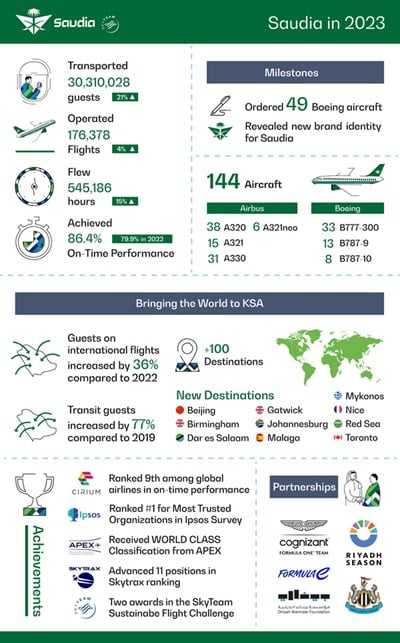From Floridian fraudsters to fake Peruvian police, these are the scoundrels out to scam you – plus, tell us your holiday scam horrors.
Ever had your holiday ruined by a con artist? Been ripped off by a faker posing as a travel agent? Tell us your tales of the holiday scammers – and whether they got away with it. Use the comment form below
Let’s start on the sunny side of the street. Travelling is a boundless pleasure, a wonderful privilege, a blessing, a boon – and don’t let anything that you’re about to read convince you otherwise.
Because you have to keep loving the open road, searching for the thrill of the new and the joy of adventure, otherwise you’ve let them get to you.
They being the sharks, the cheats and the rip-off merchants who want to make wonga from your wanderlust by the most devious means possible; the innumerable slimy, scummy little spivs whose holiday scams and fiddles, stunts and diddles could dishearten the most dedicated traveller, making them timidly give up and stay home.
But are you going to let these ratbags spoil your holiday? Hell, no. You’re going to be prepared, informed and able to spot their scams a mile off. Here are some of the most common swindles out there today, at home and abroad – don’t let them get you down.
HOME
THE HOLIDAY CLUB BAIT ’N’ SWITCH
Fancy a free lunch? Typically, bogus holiday clubs invite potential customers to a posh hotel to endure several hours of sales presentations in return for a meal and a gift. The pitch is this: for a lump sum of £3,000-£10,000, you’ll get guaranteed dirt-cheap holidays every year, paying only a nominal annual fee.
It’s always a “buy now or never” deal, but as soon as you get home and try to book your first holiday, it all goes wrong. The bargains disappear, most resorts aren’t available, there are huge high-season supplements and destinations have been oversold – and, of course, you’ve got next to no chance of getting your money back.
According to 2007 figures from the Office of Fair Trading, up to 400,000 Britons a year hand over £1 billion to bogus “holiday clubs” that don’t deliver on their high-pressure sales patter. Allegedly, one of the worst is Sunterra/Diamond, which has been the subject of consumer campaigns in Britain and the USA – one heroic former client, Allan Thompson of Glasgow, even took to parking a campaign bus, called the Scambulance, outside its sales presentations to warn off potential mugs.
Steering clear: the OFT has three rules to help you to discern between scammers and legitimate holiday clubs – every verbal sales promise must be put in writing, your cancellation rights must be clear and in print, and, most important, you must be allowed to take the contract away before signing up. But we recommend just getting online and finding your own darn bargains.
THE PHONEY FREE TRIP TO FLORIDA
The phone rings and an electronic voice tells you to hit the number 9 to claim your prize, a holiday to the Sunshine State – at which point a salesperson comes on the line and explains that you have, in fact, won only most of a holiday. To seal the deal, you are typically told, it will cost between £500 and £700 for a supposed £2,000 luxury trip, usually to Orlando and the Bahamas.
You’re then asked for your credit-card details, “strictly for verification”, but the full fee is promptly removed from your card without your consent. If you try to get the money back, the delays begin, with calls going unanswered, packages not arriving, and staff often verbally abusing customers. And your credit-card company doesn’t have to refund you – because you read out those numbers.
The Sunday Times knows of dozens of victims of this scam, and the Florida Department of Agriculture and Consumer Services has been trying to shut down the perpetrators for years – but they’re still at work.
Steering clear: if you’re told you’ve won a competition you never entered, it’s a scam. If you’ve been caught by the Florida fraudsters, go to www.800helpfla.com.
THE CARD MILL
“Become a travel agent! Save 50%-75% on flights and hotels using special travel-agent-only rates. Getting a travel-agent card takes only 15 minutes!”
This internet scam, known as “card milling”, is on the increase. Greedy travellers are told that by spending up to £260 on a travel-agent ID card, they will become eligible for industry-insider rates, meaning huge discounts on flights, hotels and, most commonly, cruises.
You cough up the credit-card details, your ID card arrives – and the first time you slap it down on a reception desk, you’re laughed out of the lobby.
The problem is becoming so widespread that Royal Caribbean Cruises has just announced a crackdown on card-mill chumps – if you flash one of these cards, not only will you not get a discount, you won’t be allowed to book at full rate.
Steering clear: if you really want a career as a travel agent, there’s a jobs page at www.abta.com.
THE FLY-BY-NIGHT
Comfortably the most costly scam in the UK is the oldest one in the book – companies taking travellers’ cash, then shutting down their businesses without delivering what they promised.
Many closures are just business failures – about 25 legitimate travel firms a year go belly up, leaving, on average, 20,000 Britons with trashed holiday plans – but many are dodgy deals. In 2006, an Oxfordshire company called MAS Travel collected more than £1m of British travellers’ cash for heavily discounted flights. But the firm never purchased the tickets from the airlines, and hastily shut up shop – some travellers found out they’d been scammed only at the check-in desk.
Steering clear: ideally, you should purchase holidays only from Atol-bonded operators, whose collapse wouldn’t cost you a penny. But in these independent-minded times, when more of us put together our own holidays, the safety net is to check that your travel insurance covers airline and operator closure – many policies do.
THE HOLLOW INSURANCE
This scam has, with luck, only one year left to run – but, as a 2007 House of Commons report suggested, because it affects 10m UK travellers a year, it’s still a worry. Basically, most travel agents are on commission to sell you insurance alongside your holiday, and for far too many of them, mis-selling is too hard to resist.
A Consumer Association survey in 2006 reported that 81% of customers didn’t have their coverage properly explained to them by their travel agent, 55% weren’t told about their excess payment and 65% weren’t asked about any existing medical complaints that might have left them uncovered.
According to another 2007 survey, by Sainsbury’s Bank, 7% of customers were told a big fat lie by their travel agent – that they had to buy the insurance to get the holiday. The government is so concerned that, from January 2009, travel agents will be regulated by the Financial Services Authority.
Steering clear: make it your responsibility – because, legally, the obligation lies with you – to ensure that the agent knows about any medical conditions and precisely what your trip will entail. And remember that it is your right to shop around.
AWAY
THE FAKE RECEPTIONIST
If you’re a scam artist, the modern-day jackpot is spending some time alone with a traveller’s credit-card details before they realise anything is up. Common, and almost unstoppable, tricks include capturing all the details when you hand the card over for a meal or some petrol – but one ingenious new tactic, first reported in Shanghai, has been to call hotel rooms late at night, pretending to be from reception.
“We’re trying to process your bill, sir, but the card details seem to be wrong. Could you just bring the card down to the desk?” “But it’s two in the morning!” “Okay, just read the numbers out down the phone…”
Steering clear: take great care who gets your numbers and handles your card out of your sight. Realistically, your best defence is last-ditch – checking your credit-card statement carefully after every foreign trip. You should be refunded any money that has been taken illegally.
THE SECRET CONVERSION
There’s a more minor, but also more irritating, way you can be diddled when you hand over your card overseas. Whenever you pay by card, you should be given the choice of stumping up in sterling or in the local currency – and the sensible choice is the latter, allowing your bank to convert the sum to sterling later on.
But many shops, hotels and restaurants have other ideas, and convert your bill into sterling without asking you, using their own brazenly uncompetitive conversion rates. To add insult to injury, they stick on an exchange commission of up to 4%. Cheeky.
Steering clear: it’s a good golden rule to use the credit card only for larger purchases from established vendors, then remember to tell them you want to pay in their home currency.
THE PRETEND POLICEMEN
It’s a classic scam, because it works. The well-spoken young backpacker who told me this cautionary tale has, perhaps wisely, opted for anonymity: “I was hanging out in Cuzco, Peru, when I met a local guy, and we became friends. He showed me some of the ruins, we had a few beers, then, one night, he said, ‘You are my friend, you are kind to me. I want to give you a present.’ And he gives me a fistful of marijuana.
About an hour later, I was walking back to my hostel. Two men were waiting outside the front gate. They told me they were policemen and asked me to empty my pockets. When they found the dope, they told me I’d spend four years in prison for dealing drugs… unless I paid them $200 to forget everything. Panicking in a dark street, I paid up there and then – and never saw my ‘friend’ again.”
Steering clear: don’t do drugs. In general terms, if you get yourself into a similarly sticky situation, remember that your safety is the priority. Try calmly to make the issue public, getting other people involved, preferably the real police – although if you’ve got a pocketful of hash, that’s going to be tricky. If you’re alone, consider coughing up.
THE SHONKY EXCHANGE BOOTH
There are so many scams involving exchange booths, it’s, fittingly, hard to keep count. There will always be occasions when you need to change cash but there’s no bank about, so more informal converters come into play. Most are perfectly legitimate, but signs that all is not well include: the teller shuffling and counting out bills in absurdly small denominations, which makes keeping score a chore; a disturbance or argument that conveniently flares up just as you’re trying to count your cash; and anything involving opaque envelopes, which will probably turn out to contain newspaper clippings.
Steering clear: always change money in a pair, so one of you can concentrate while the other fends off any distractions. Get a receipt, and choose fixed premises, not a bunco booth or a bloke with a briefcase, so you’ll have somewhere to take the police if you do get short-changed.
THE DODGY DRINKING BUDDY
Many of us have been caught in the “nice” version of this scam – a friendly stranger takes you drinking in a foreign land, pays a fraction of what it’s costing you for the same round of drinks, then takes a backhander from the bar-owner at closing time for hauling your well-fleeced backsides into the establishment. No big deal.
But a nasty version has, travellers’ websites suggest, taken root in the newly fashionable slacker beach resorts of Venezuela. This time, your pretend buddy slips you a jungle version of Rohypnol, known as burundanga. This generates about three hours of stumbling incapacity, during which time you are roundly robbed.
The Foreign Office reports that burundanga is also being used in the Venezuelan capital, Caracas, to sedate travellers by touch, using laced pamphlets and flyers. But booze is the most common delivery system – because who spots a drooling backpacker? Unsurprisingly, Thailand is also becoming a drink-doping hot spot.
Steering clear: with the “nice” scam, it’s probably best to relax – frankly, if everyone knows what’s happening, what’s the harm? To avoid getting burundangaed, watch your own drink in a bar, favour bottled products and always think carefully about going clubbing before you fly solo.
THE UNLICENSED TAXI
You’re tired, there’s a queue at the taxi rank, so you accept the cheery offer of an unofficial taxi. From this point on, a good outcome is that you’ll be overcharged, or forced to stop off at the driver’s brother’s souvenir shop on the way to your hotel.
The bad outcome is unthinkably bad. In 2006, an Austrian couple on a round-the-world trip got into a fake taxi at the bus terminal in La Paz, Bolivia – and were kidnapped. Their bank cards and Pin numbers were taken and they were held captive for five days, while their bank accounts were emptied. They were then killed.
Steering clear: never get in unofficial taxis – full stop. And, sadly, it seems the old traveller’s tradition of sharing taxis to save money is no longer safe – the poor Austrian couple, and the others who have escaped similar ordeals (chiefly in South America), were partly undone by gang members posing as travellers and getting into their taxi. Only share rides with those you trust, and never permit the driver to pick up another passenger.
THE SHOESHINERS OF ISTANBUL
Some scams are much more harmless. The many young men who scratch a living shoeshining in Istanbul have an elegant moneymaking trick. They’ve developed the art of inadvertently dropping their brush behind them in the street, in a holidaymaker’s path.
You pick it up and take it to them, and they thank you effusively for saving the vital tool of their trade – it’ll probably turn out to be their grandfather’s shoe brush. To say thanks, they offer you a free shine, and, as your toes are buffed, you’ll hear a long hard-luck story, designed to loosen the stiffest wallet.
Steering clear: Why steer clear? If your shoes need polishing, accept the offer, enjoy the story and pay the man. Once your leather’s nice and shiny, you’ll be left well alone.
THE METAL-DETECTOR SHUFFLE
A clever one, this – you put your belongings on the conveyor belt, but a man bustles past you in a desperate hurry. He then gets himself held up at the detector, emptying his pockets of innumerable coins, keys and collectables. While you wait patiently, the guy who was in the queue in front of you – Mr Metal’s accomplice – waits for your bag, then nicks it.
US airports, where security chaos and wealthy travellers collide, seem most blighted by this – in 1997, a Texan oil baroness passing through Newark airport was diddled out of her handbag, which contained jewellery worth more than £300,000.
Steering clear: watch your stuff, stand your ground – and, in general, think twice about using your luggage to advertise your wealth.
AND FINALLY
THE BUS SCAM SCAM
Finally, an answer to the question: “How stupid can people be?” According to insurance-industry reports, this stunt has reeled in gullible travellers across the USA and Canada. It goes like this – you are approached by someone in a bar who guarantees you thousands of dollars if you join in a scam by getting on a bus that they will rear-end somewhere along its route.
Most of the passengers, you are promised, will be in on the fraud, and will all protest that it was the driver’s fault, while rubbing their hips and necks. And the bus company will start handing out cash and liability-waiver forms immediately. To get a piece of the action, all you have to do is pay your new friend a $250 fixer’s fee and get on the assigned bus.
Next day, you get on the bus, winking at all your fellow passengers, and, as the journey passes without incident, you slowly realise that you are an incurable chump.
timesonline.co.uk
WHAT TO TAKE AWAY FROM THIS ARTICLE:
- The phone rings and an electronic voice tells you to hit the number 9 to claim your prize, a holiday to the Sunshine State – at which point a salesperson comes on the line and explains that you have, in fact, won only most of a holiday.
- the OFT has three rules to help you to discern between scammers and legitimate holiday clubs – every verbal sales promise must be put in writing, your cancellation rights must be clear and in print, and, most important, you must be allowed to take the contract away before signing up.
- Allegedly, one of the worst is Sunterra/Diamond, which has been the subject of consumer campaigns in Britain and the USA – one heroic former client, Allan Thompson of Glasgow, even took to parking a campaign bus, called the Scambulance, outside its sales presentations to warn off potential mugs.






















